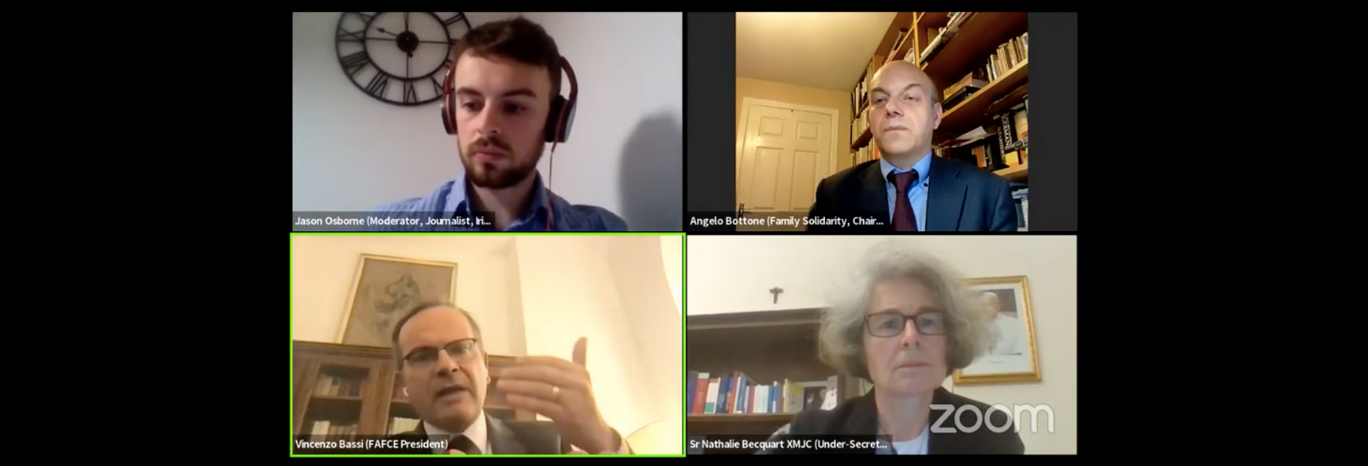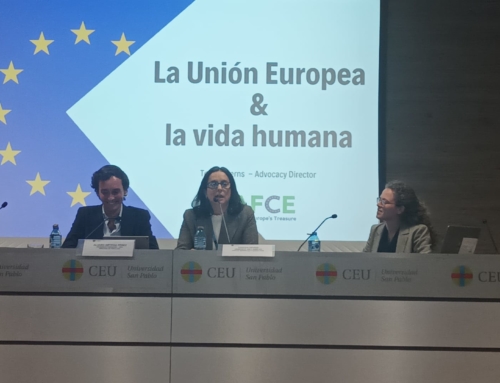21 December 2021,
On the 9th of December 2021, FAFCE organised, jointly with its Irish member, Family Solidarity, a Webinar on “Family and Synodality: a call for participation“, following the opening of the Synod earlier this October.
Angelo Bottone, Chairman of Family Solidarity, opened the conference with few words on the key components of the Synod: “What is the Synod? and how can we participate?“. “Listening is a key work. Synodality means listening. Listening is not passive, it is an active engagement that requires a dynamic participation.”
Sr Nathalie Becquart, XMCJ, Undersecretary for Synod of the bishops, the keynote speaker of the event, presented the profound connection of the Synod to the family: “Synodality is in the DNA of the family. The Church is rooted in the mystery of Trinity, the mystery of communion, and the first place that imitates the Trinity is the family.” She encouraged all families to feel part of the synodal process: “Synodality is about journeying together, children, disabled person, bishops, sisters, elderly, all together guided and led by the Holy Spirit, seeking communion, calling for the participation of everybody in a way to be a missionary Church”. Moreover, the family possesses a key role in the synodality: its is a bridge within its community, inside and outside the Church: “The family lies at the intersection of the Church and the world, with the God-given mission of “familiarizing humanity” or “domesticating the world” by the power of love.”
Vincenzo Bassi, FAFCE President, concluded the event by stressing the role of family associations as intermediates between families and the Church: “Family associations can carry out a specific role in order to recreate an environment of villages of the past”. “You need an intermediate body, the family association, which facilitates this process between the family and the Church”. Within this network of solidarity, families feel less alone in their responsibility and empowered in their role. “We can also much easier realise our vocation as husbands, as fathers, as lay people. We need to realise that we have to carry on this responsibility. But how? It is essential for families to be part of networks, and we need to speak much more about this modality to help and to serve the families, he church and the evangelisation of our communities“.









